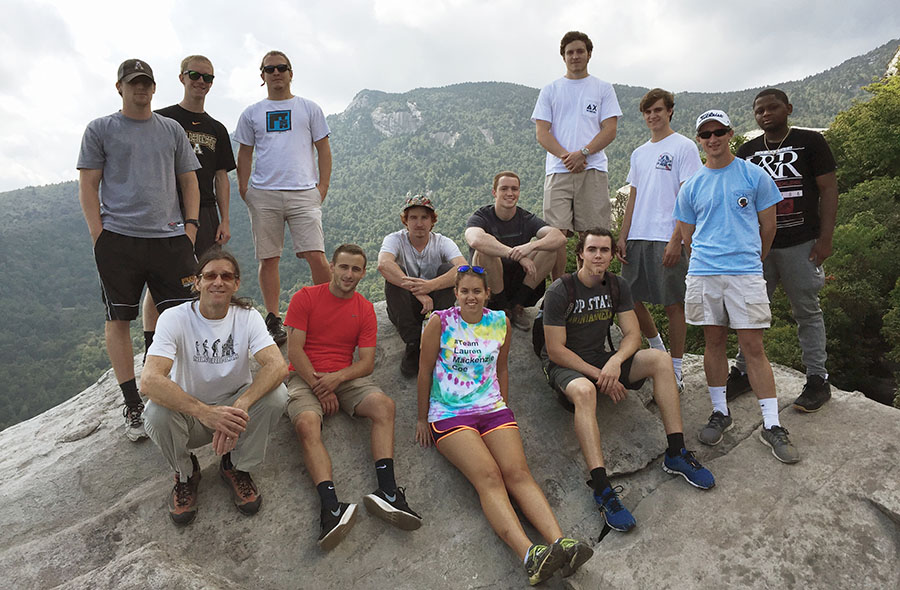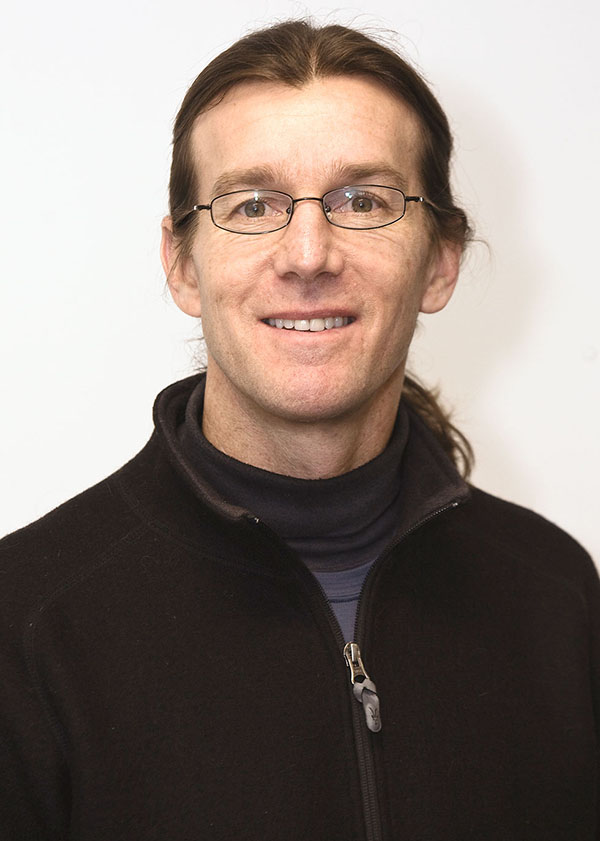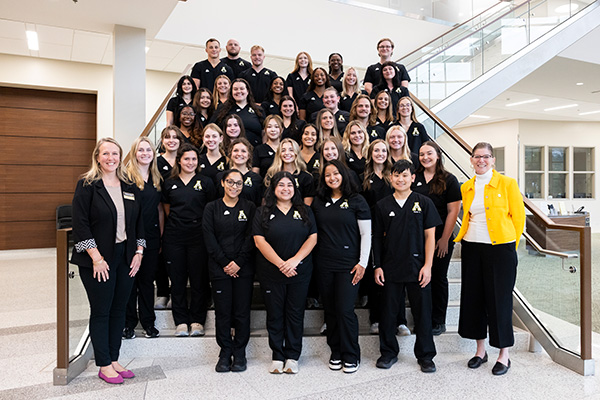Students who take Dr. Eric Frauman’s recreation management classes may find themselves reading such classic environmental writers as Rachel Carson and John Muir, as well as such quirky ones as Dr. Seuss, whose parable of “The Lorax” illustrates the problems caused by deforestation and habitat loss.
“My teaching philosophy is founded on being relevant, engaging and memorable,” he said. “Each day I meet with a class, my primary goal is to tell a story.”
Frauman, who joined Appalachian’s faculty in 2004, is an associate professor in the Department of Recreation Management and Physical Education, an area of interest nurtured by a life outdoors.
A patch of woods near Frauman’s childhood home in South Florida gave him and his brother a place to hike, build forts and develop an appreciation for nature. And, during three summers as a teenager, he followed his parents – both teachers – to Eagles Nest Camp near Brevard where they moonlighted as program directors. There he was introduced to the mountains, fresh water streams and rock climbing, all of which deepened his appreciation for the outdoors.
After college, he moved to California and began frequenting the national parks of the Southwest and Northwest, ultimately pursuing degrees that would enable him to shape a career around his love of parks and the environment.
Frauman’s class, Natural Resources: Becoming an Informed Citizen, was designed to give students the tools they need to make informed decisions about environmental issues and natural resources using outdoor recreation as the primary filter.
The course features a number of field trips to locations such as the Blue Ridge Parkway or Appalachian’s wind turbine. Sometimes Frauman simply walks the class to Durham Park, on campus, to hold class.
“That’s what John Muir would do,” Frauman said. “He’d hold a session outside.”
The class also exposes students to the range of organizations involved with the outdoors. These include everything from local cycling groups to Appalachian Voices, a nonprofit in Boone that fights such practices as fracking and mountaintop removal coal mining. As part of the course, students are required to take some sort of action on an environmental issue, such as writing to a politician they either agree or disagree with.
Frauman doesn’t espouse a singular viewpoint in the classroom. In fact, he’s been known to jump in and argue the opposing side of an issue if there’s no disagreement among students.
He said that he’s more concerned with helping students understand how to be informed citizens, and how to create change. Not all of his students will go onto careers in the environment, but they enjoy being outdoors, and they can still be guardians of the environment.
“In 10 years, I hope they’re making a difference,” he said. And then, thinking like the Lorax he adds: “And I hope they’re speaking for the trees.”
What do you think?
Share your feedback on this story.
About the Department of Recreation Management and Physical Education
The Department of Recreation Management and Physical Education in Appalachian State University’s Beaver College of Health Sciences is an innovative, diverse and forward-thinking academic unit consisting of two undergraduate programs. The recreation management program prepares students for careers as professionals in three concentrations: commercial recreation and tourism management, outdoor experiential education, and recreation and park management. The health and physical education program prepares students for careers as K-12 health and physical educators, school-based activity directors and coaches. Learn more at https://rmpe.appstate.edu.
About the Beaver College of Health Sciences
Appalachian State University’s Beaver College of Health Sciences (BCHS), opened in 2010, is transforming the health and quality of life for the communities it serves through interprofessional collaboration and innovation in teaching, scholarship, service and clinical outreach. The college enrolls more than 3,600 students and offers 10 undergraduate degree programs, nine graduate degree programs and four certificates across seven departments: Kinesiology, Nursing, Nutrition and Health Care Management, Public Health, Recreation Management and Physical Education, Rehabilitation Sciences, and Social Work. The college’s academic programs are located in the Holmes Convocation Center on App State’s main campus and the Levine Hall of Health Sciences, a state-of-the-art, 203,000-square-foot facility that is the cornerstone of Boone’s Wellness District. In addition, the college supports the Appalachian Institute for Health and Wellness and has collaborative partnerships with the Wake Forest University School of Medicine’s Physician Assistant Program, UNC Health Appalachian and numerous other health agencies. Learn more at https://healthsciences.appstate.edu.
About Appalachian State University
As a premier public institution, Appalachian State University prepares students to lead purposeful lives. App State is one of 17 campuses in the University of North Carolina System, with a national reputation for innovative teaching and opening access to a high-quality, cost-effective education. The university enrolls more than 21,000 students, has a low student-to-faculty ratio and offers more than 150 undergraduate and 80 graduate majors at its Boone and Hickory campuses and through App State Online. Learn more at https://www.appstate.edu.













